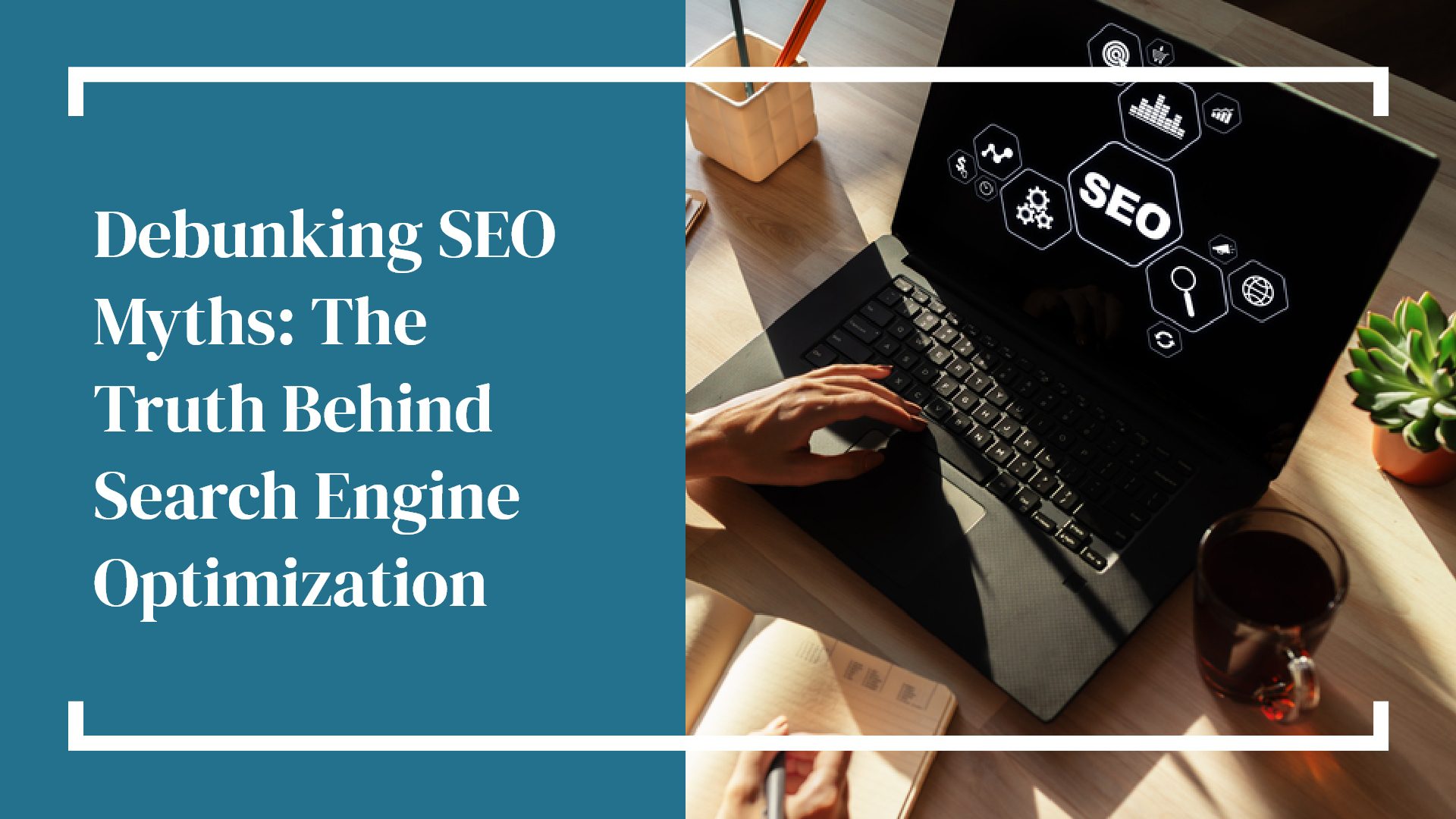Search Engine Optimization often seems to be shrouded in mystery and confusion. With the constant changes to search engine algorithms and the abundance of misinformation circulating online, it can be difficult to separate fact from fiction when it comes to SEO tactics, and can be easy to fall victim to certain myths and misconceptions. By understanding the true nature of SEO and focusing on creating valuable content, optimizing user experience, and building natural backlinks, you can improve your website’s search engine rankings and drive organic traffic over time. SEO is an ongoing process that requires consistent effort and adaptation to stay ahead of the ever-changing search engine algorithms.
Myth #1 – SEO Is All About Keywords
One of the biggest misconceptions about SEO is that it’s solely about keyword optimization. While keywords play a vital role in SEO, there are several other factors that search engines take into account. User experience, website speed, mobile-friendliness, backlinks, and content quality are just a few examples of other important ranking factors. While keyword research is important, it’s crucial to focus on providing valuable and relevant content to users rather than simply stuffing keywords into your pages.
Myth #2 – SEO Is a One-Time Task
You can’t set it and forget it. Many believe that once they implement SEO strategies on their website, they can sit back and watch their rankings soar indefinitely. However, SEO is an ongoing process that requires constant monitoring, analyzing, and adjusting. Search engine algorithms are constantly changing, and new competitors are consistently emerging. Regularly updating your website, creating fresh content, and adapting to algorithm updates are essential to maintain and improve your rankings.
Myth #3 – The More Backlinks, The Better
Backlinks are an important aspect of SEO, as they signal to search engines that your website is authoritative and trustworthy. However, quality always trumps quantity when it comes to backlinks. It’s better to have a few high-quality backlinks from reputable and relevant websites than dozens of low-quality backlinks from spammy or irrelevant sites. Focus on building relationships, creating valuable content, and promoting your website to earn natural backlinks.
Myth #4 – SEO Is All About Ranking #1
While the ultimate goal of SEO is to improve your website’s visibility and rankings, achieving the top spot is not the only measure of success. Search engine result pages (SERPs) now include various types of results, such as featured snippets, knowledge graphs, and local packs. These other types of results provide opportunities for your website to gain visibility even if it’s not ranking in the top spot. Additionally, focusing on specific long-tail keywords that are more relevant to your target audience can often yield higher conversion rates and better ROI than targeting generic, high-competition keywords.
Myth #5 – SEO Results Are Immediate
Many people expect quick results when it comes to SEO. However, SEO is a long-term strategy that requires patience and persistence. It can take weeks, or even months, for search engines to crawl, index, and rank your website. Moreover, factors like domain age, competition, and the quality of your website’s content can influence how quickly you see results. It’s important to set realistic expectations and focus on consistent effort rather than immediate gratification.
Myth #6 – Social Media Affects SEO Rankings
While having a strong social media presence can indirectly impact your SEO efforts, social signals do not have a direct influence on search engine rankings. Likes, shares, and retweets are not considered ranking factors in search engine algorithms. However, social media can help generate traffic, increase brand awareness, and build natural backlinks, all of which indirectly contribute to improved SEO performance.
Myth #7 – SEO Is About Tricking Search Engines
In the early days of SEO, some used black-hat tactics to manipulate search engine rankings. However, search engines have become much more sophisticated and can now recognize and penalize such tactics. SEO is not about tricking search engines but rather about optimizing your website to deliver the best possible user experience. By providing valuable, relevant, and well-structured content, you can improve your website’s rankings while also benefiting your visitors.
Myth #8 – Paid Search Help Rankings
There is a common belief that paying for search ads, such as Google Ads, can directly impact your organic search rankings. However, search engines, including Google, have strict policies in place to prevent such manipulation. Paying for search ads has no direct impact on your organic search performance. It’s important to understand that paid search ads and SEO are two distinct strategies that should be approached separately but can complement each other when used together.
Hammersmith Support SEO Service Can Help
Don’t let misconceptions about SEO hold your website back. Schedule a SEO consultation today to learn the truth behind SEO and how it can benefit your website. Our team will help guide you through the intricacies of search engine optimization and create a customized strategy that will help increase your website rankings.

